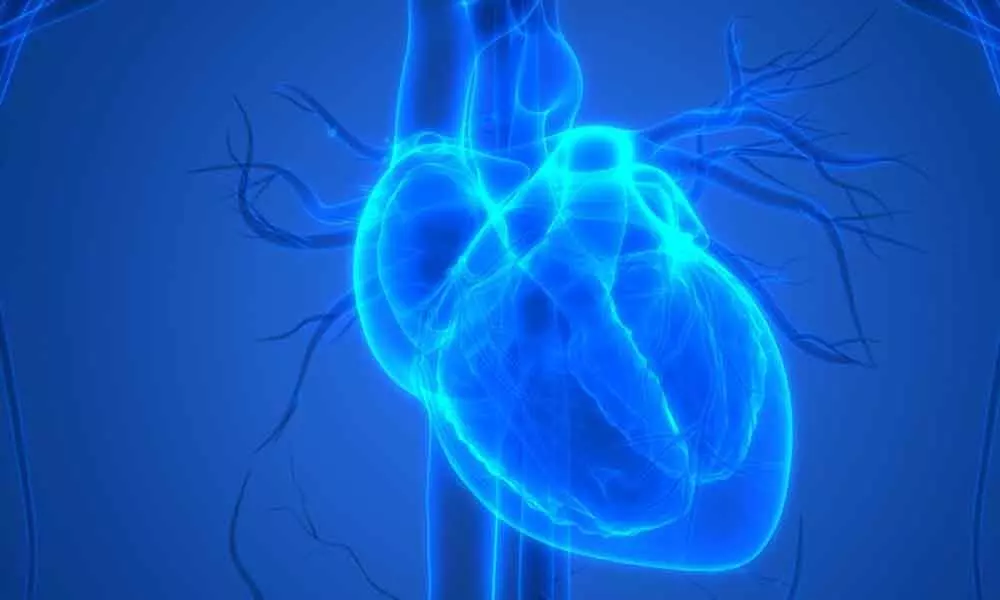Sydney: Protein therapy may improve heart attack outcomes

Heart disease remains the largest killer around the world and now researchers have found that a protein therapy -- recombinant human platelet-derived growth factor-AB (rhPDGF-AB) -- could improve outcomes following heart attack.
Sydney (IANS): Heart disease remains the largest killer around the world and now researchers have found that a protein therapy -- recombinant human platelet-derived growth factor-AB (rhPDGF-AB) -- could improve outcomes following heart attack.
After a heart attack, scar tissue forms and this negatively affects heart function, said the study, published in journal Science Translational Medicine.
In the study, researchers showed that infusing rhPDGF into participants that have had heart attacks improves the quality of the scar, leads to the formation of new blood vessels in the heart and reduced rates of dangerous heart arrhythmia (irregularities of heart rhythm that can cause sudden death).
"This is an entirely new approach with no current treatments able to change scar in this way. By improving cardiac function and scar formation following heart attack, treatment with rhPDGF-AB led to an overall increase in survival rate in our study," said the study's lead researcher James Chong from the University of Sydney in Australia.
"While the treatment did not affect overall scar size, importantly we found that rhPDGF-AB led to increased scar collagen fibre alignment and strength. This improved heart function after the heart attack," Chong said.
According to the study, Richard Harvey, Professor, Victor Chang Cardiac Research Institute, had previously shown that the protein can improve heart function in mouse models following heart attack.
"This project has been developed over more than 10 years and we now have compelling data in two species for the effectiveness of this treatment," said Chong.
Following heart attack, the heart muscle is damaged, causing thick scar tissue to form. This can limit the heart's ability to function efficiently, and can increase the risk of heart failure, and sudden cardiac death.
Current treatments aim to restore blood and the oxygen supply to the heart as quickly as possible to reduce scarring. While this improves clinical outcomes, up to a quarter of patients experiencing their first heart attack will develop heart failure within one year.
"While we have treatment protocols in place, it's clear that there is an urgent, unmet need for additional treatments to improve patient outcomes particularly after large heart attacks," Chong said.
"Some further animal studies are required to clarify safety and dosing. Then we can start looking towards clinical trials in humans very soon," Chong added.
According to the study, rhPDGF-AB is clearly a promising therapeutic option, and could potentially be used alongside existing treatments to improve heart attack patient outcomes and survival rates.
"We now hope to further investigate the treatment, including whether it could be used in other organ systems impacted by scar tissue, such as the kidneys," Chong concluded.








